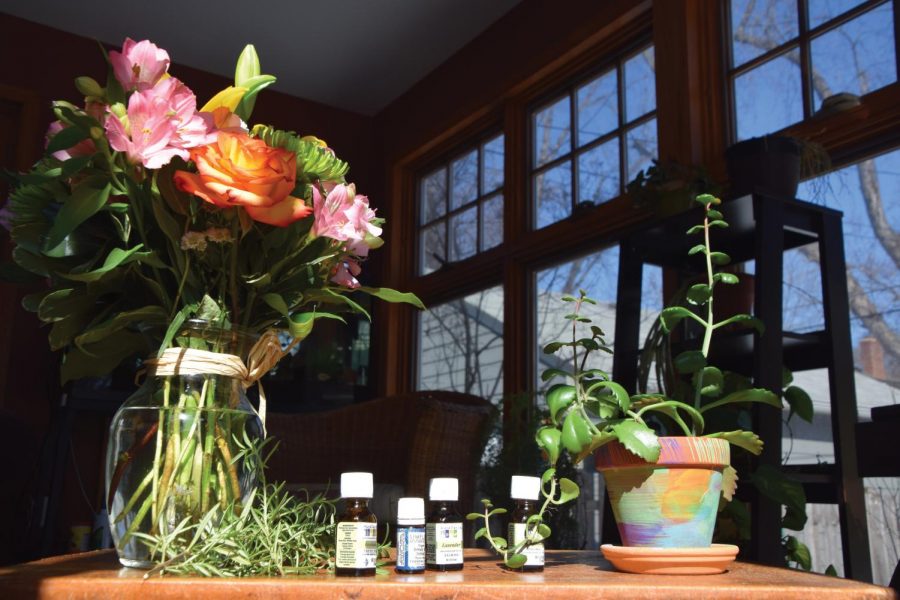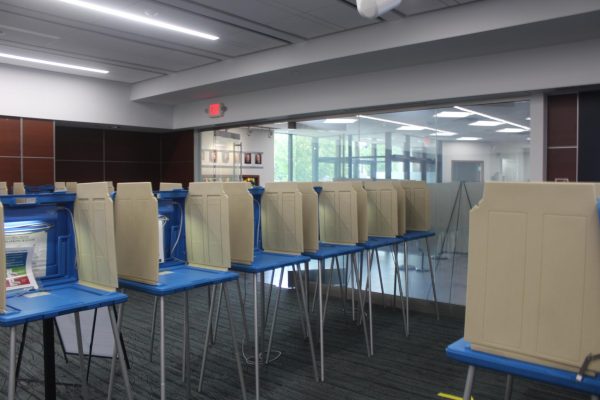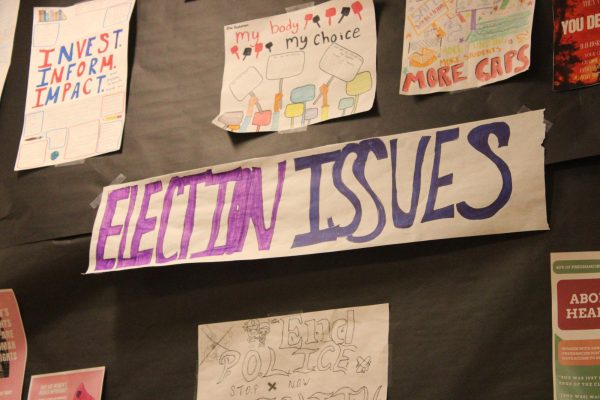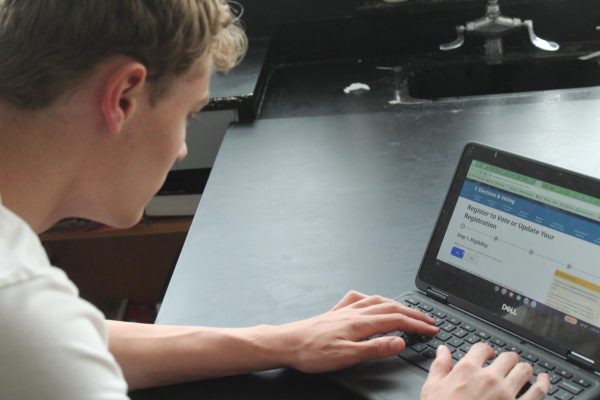Integrative medicine unifies healing processes
Rise in prevalence of non-western medicinal practices
Experiencing an increase in anxiety with the upcoming track season, junior Anna Jennissen said she felt inclined to look for alternative ways to combat her stress.
According to Jennissen, she will be receiving help from integrative medicine specialist Bob Decker to help with the mental aspect of sports.
“If you are a very anxious person and you have anxiety with sports or with school, he will put these beads in our ear. It helps relieve (anxiety) and people are using him for physical problems and mental problems,” Jennissen said. “I have anxiety with track so I was going to ask him to help me .”
According to Charlotte Alvarez, founder and owner of One Medicine Acupuncture and Apothecary located in Minneapolis, alternative medicine refers to any non-western medicinal practice used instead of a traditional western treatment.
“Alternative medicine would be a medicine that is a different choice to allopathic western me
dicine,” Alvarez said. “With alternative medicine you can choice to incorporate it to into Western medicine or you can use it instead of western medicine.”
Alvarez said, on the other hand, integrative medicine is a newer term referring to practices that work in tandem with Western medicine.
“Say you went to your regular doctor because you had an ear infection and they said ‘OK this is what we can do for you. We have antibiotics’,” Alvarez said. “Then you went to your acupuncturist and they said ‘OK we can do acupuncture and herbal medicine and cupping’ and you could choose to do all of that. They work together.”
According to Bob Decker, an accupuntarist at the Penny George Institute for Health and Healing, he specializes in Chinese medicine, which differs from Western medicine because it focuses on more than physical ailments.
“Traditional Chinese medicine is by itself a complete approach to medicine. They use a body, mind, spirit approach, while Western medicine you are dealing with symptoms and you approach how to solve a symptom,” Decker said.
Senior Eitan Grad said he supports the use of integrative medicine as long as there is proof of its benefits.
“I think alternative treatments can be good as long as they have a sound basis of research of the treatment,” Grad said.
Alvarez said although one misconception about integrative medicine practices is that they lack scientific research, this is not true.
“There is a lot of research that proves that acupuncture is a wonderful, effective medicine especially fo
r things like pain relief or nausea,” Alvarez said.
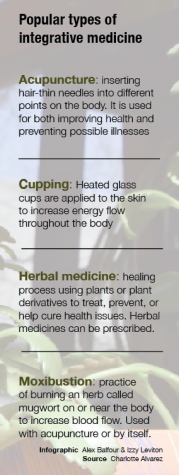
Celebrities using integrative medicine like cupping brought the public’s attention to these practices, according to Alvarez. People are also becoming more concerned with what they are putting in their bodies and are turning to herbal medicine, Alvarez said.
“If they are in the news and they have their marks showing, it generates a lot of publicity for the medicine,” Alvarez said. “I think in general, all of Chinese medicine in growing. I think herbs are definitely a growing trend because people are trying to be more healthy, and they don’t always want to put pharmaceutical drugs in their body.”
Decker said he has his own private practice in Park where he works with many high school athletes.
“In St. Louis Park I have worked on a lot of soccer players and basketball players and athletes.
I do that and I have my own private practice in St. Louis Park that is outside of the Alina system where I see some patients,” Decker said.
According to Jennissen, many Park athletes have benefited from Decker’s private practice.
“He has a really big effect on a lot of athletes because he helps with girls’ and boys’ soccer, and I think a lot athletes realize what he can do, so they know they can go and use him for help,” Jennissen said.
Freshman swimmer Hayden Zheng said he uses cupping, a form of Chinese medicine, to relax his muscles in preparation for swim meets.
“It relaxes the muscle because it pulls up all the tissue and the muscle. Then after you release it loosens and the blood flow increases,” Zheng said. “That is good because by the time the meet rolls around a week later, the muscles will be ready because they will be a lot looser.”
Zheng said having loosened muscles while competing increases his performance in events.
“(Cupping provides) higher performance because swimming is about feeling the water and if you have a good feel that completely ties into your muscles being looser,” Zheng said. “If you are looser in the water, that helps you go faster.”
Jennissen said after receiving acupuncture from Decker, she noticed the muscles in her body relax.
“He explains it as reorganizing the energy in our bodies. He said that that is one way it helps us, but it also calms the muscles down,” Jennissen said. “For me, all the muscles were super tight so then it relaxed it and took some of the strain out of my body right away.”
Integrative medicine does not only help athletes, but also alleviates some side effects of cancer therapy along with other post-surgical pain, Decker said.
“I have worked with a lot of cancer patients because it is helpful in terms of dealing with some of the side effects from chemotherapy,” Decker said. “I work on a lot of different types of pain issues, post surgical pain, arthritis type pain. I work with a lot of people with emotional issues like anxiety and depression.”
Senior Eitan Grad said his sister has used acupuncture as a form of skin treatment instead of using traditional medicine, which has in turn improved her mental state without the sideffects of some regular medicines.
“My sister was very concerned about the appearance of her skin. It was something which effected her self-esteem so she started going to acupuncture appointments to focus on her skin,” Grad said. “I think it really appears to be working and she seems a lot more happy and a lot more confident.”
Decker said Chinese medicine’s ability to integrate problems from different elements and systems in the body can help improve someone’s overall health.
“In approaching somebody that way, sometimes we can take what seems to be symptoms from different systems and they coalesce in our system into one pattern,” Decker said. “By solving that pattern, the person then gets well.”
Alarez said stress, anxiety and depression are one of the top things she treats with integrative medicine.
“In a lot of ways it is really stress relieving. It helps detox both the physical body and the mind and emotional body,” Alvarez said. “If you have stagnant emotions that are not moving or you feel stuck or if you feel sad or depressed, it can help move those.”
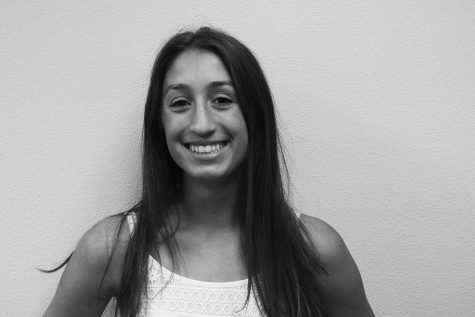
Hi my name is Alex Dominique Balfour! You can call me Fat-Al or Al Bal. I am a copy editor for this lovely newspaper. I am a super all-star soccer player...
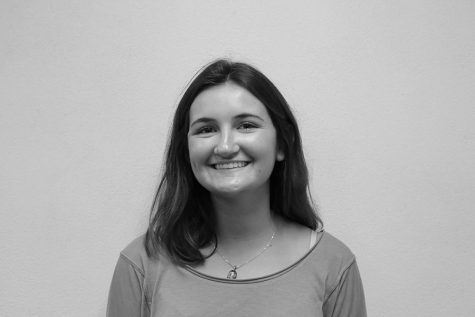
Salutations! My name is Izzy and this iz my first year writing for the Echo. Talents include: sledding, bowling a 300 (and better than Jacob), cooking...



